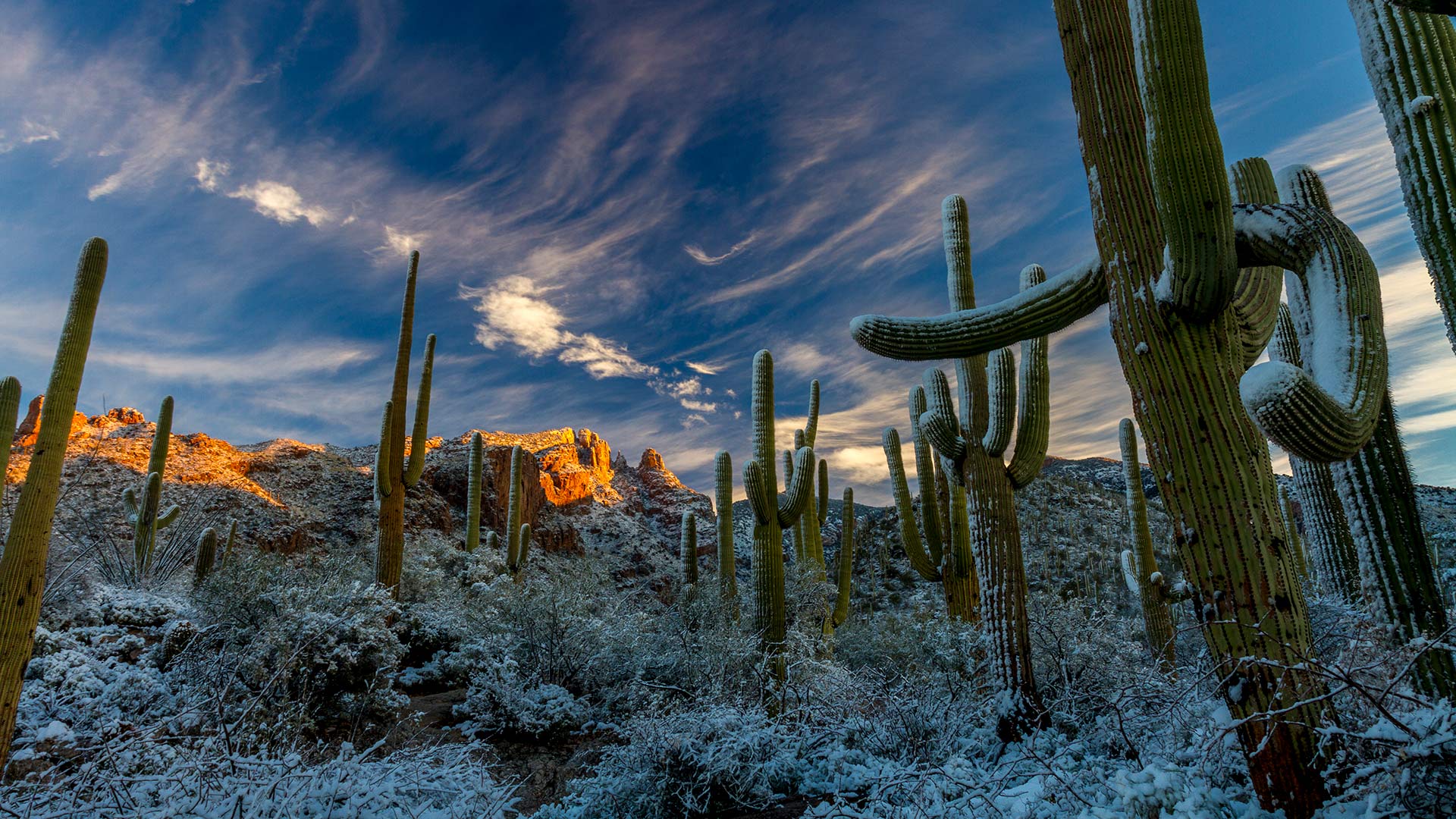 Rare desert winter snow on saguaro cactus in the Catalina Mountains.
Rare desert winter snow on saguaro cactus in the Catalina Mountains.
If you are in the northern hemisphere, then today will seem pretty short.
To use the Tucson area as an example, apparent sunrise is expected after 7:28 am and sunset coming at 5:25 pm, the winter solstice is the day at which the north pole is tilted the most away from the sun, meaning the sun is at its lowest point on the horizon for those north of the equator.
But why isn't the day that we get the least amount of warming sunshine the coldest point of the winter rather than the start of it?
"We're still cooling down," Aaron Hardin, a meteorologist with the National Weather Service office in Tucson, said. "Even though after the winter solstice we're going to start to receive more solar energy, it's still not a whole lot so we're still going to cool off."
He said that the ground below us is radiating heat.
To help explain, Hardin used an analogy that puts things on a shorter timeframe and also talks about the inverse.
"The hottest temperature isn't usually at solar noon when the sun is the highest in the sky, which can be 1:00-2:00 pm. Sometimes the warmest temperature is at 3:00-4:00 pm. It's the same thing with the seasons. There's just a slight lag."
And while on traditional calendars, this is the start of winter. That is not so for meteorologists. Hardin said that meteorological winter makes up the entirety of December, January and February.

By submitting your comments, you hereby give AZPM the right to post your comments and potentially use them in any other form of media operated by this institution.